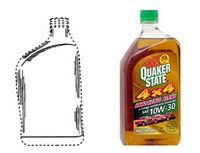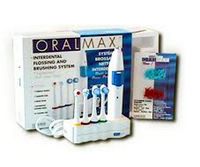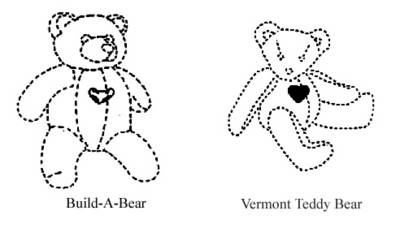TTABlog Flotsam And Jetsam -- Issue No. 4
I'm back from my European road trip, and fortunately while I was gone the TTAB was not very prolific in issuing decisions. So this is an opportune time to update a few prior TTABlog postings.
CAFC dismisses appeal in "clear bottle" dispute. On June 10th, The CAFC dismissed without opinion Pennzoil's appeal from the TTAB's decision in Texaco Inc. v. Pennzoil-Quaker State Co., Opposition No. 91120520 (May 28, 2004) [not citable], discussed here at the TTABlog. The Board sustained Texaco's opposition to Pennzoil's application for registration of "the color clear used on containers for motor oil." The Board found the applied-for mark to be de jure functional and, in the alternative, lacking in acquired distinctiveness.

It would have been useful to have another CAFC ruling on the issue of product configuration/trade dress functionality, but it was not to be. Instead all we have is a dismissal without opinion of an uncitable TTAB decision -- and that, my friends, is a clear disappointment.
Reconsideration denied in ORAL MAX opposition. The chances that the TTAB will grant a request for reconsideration are as thin as a razor's edge. In 2005, all ten requests for reconsideration of a final Board decision have been rejected. Thus it was hardly surprising that the Board denied Gillette Canada's request for reconsideration of the recent ORAL-MAX decision.
As discussed here at the TTABlog, in Gillette Canada Co. v. Robin Research Labs., Inc., Opposition No. 91124984 (April 12, 2005) [not citable] the Board dismissed Gillette's opposition to registration of the mark ORAL MAX & Design for "electric toothbrush and dental flossing units" because Gillette failed to get into evidence its registrations and failed to prove prior use of its ORAL-B marks.

In its reconsideration request, Gillette argued that Rule 2.122(d)(2), which governs the submission of status and title copies of registrations, does not distinguish between filing during the main testimony period and during the rebuttal period, and therefore Gillette's notice of reliance submitted during its rebuttal period was proper. The Board disagreed, noting that Rule 2.121(b)(1) specifies that the Board set "a testimony period of the plaintiff to present its case in chief." Submission of the registrations should have been part of Gillette's case in chief.
Gillette also pointed out that Applicant Robin Research never objected to the tardy notice of reliance, but the Board observed out that "opposer had no right to presume that the Board would consider improperly adduced evidence."
Reconsideration denied in "heart-in-a-teddy-bear" case. The Board likewise denied Vermont Teddy Bear's request for reconsideration of the decision in Vermont Teddy Bear Co. v. Build-A-Bear Workshop, LLC, Opposition No. 91115198 (December 17, 2004) [not citable]. As discussed here at the TTABlog, the Board dismissed Vermont's Section 2(d) opposition, finding that Vermont's prior use of a heart "does not constitute trademark use and is not protectable under the Lanham Act."

Vermont's request for reconsideration was summarized here at the TTABlog. In denying the request, the Board ruled that Vermont's notice of opposition was filed "solely under Section 2(d)" and did not include a fraud claim, as Vermont contended. Consequently, the Board did not prematurely grant summary judgment since there was no other pleaded ground to consider.
The Board also held that Vermont was mistaken in its assertion that it was prohibited from moving to amend its notice of opposition (to add a fraud claim) after issuance of the Board's summary judgment suspension order. That order stated that the parties should not file any papers other than those germane to Build-A-Bear's summary judgment motion. The Board pointed out that, according to TBMP Sec. 528.03, the examples of papers that are germane include a motion to amend a party's pleading.
Text ©John L. Welch 2005. All Rights Reserved.




0 Comments:
Post a Comment
<< Home